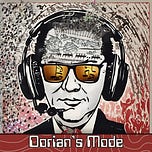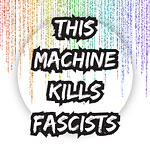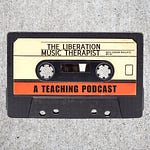In this episode of Liberation Music Therapist, we explore the foundations of music and music therapy, focusing on how music influences the mind, body, and spirit. Dorian Wallace discusses key concepts such as rhythm, melody, harmony, and musicking and introduces how these elements connect to healing practices within the context of liberation music therapy. This episode emphasizes the importance of challenging capitalist realism and embracing music as a tool for both personal and collective transformation.
Key Topics Covered:
Introduction to foundational elements of music therapy, including rhythm, melody, harmony, and silence
Music therapy as defined by the American Music Therapy Association (AMTA) and its use in promoting wellness, managing stress, and more
The concept of musicking: engaging with music as a social and participatory act
Challenging the notion of music as a universal language; instead, music is a cultural universal, deeply shaped by historical, political, and social contexts.
Reflection on how music's healing power is influenced by context, history, and social dynamics
Episode Highlights:
Music therapy is a clinical, evidence-based practice that helps people achieve individualized therapeutic goals, such as reducing stress, enhancing memory, and improving communication.
Music consists of sounds and silences, and its structure—whether through rhythm, melody, or harmony—affects the mind and body.
The social and political context in which music is created and experienced can dramatically shape its meaning and impact.
Liberation Music Therapy integrates music therapy with social justice efforts, aiming to address systemic oppression and promote collective healing.
Links and Resources:
Learn more about Dorian Wallace: www.dorianwallace.com
Subscribe to Dorian's Mode Substack: doriansmode.substack.com
Call to Action:
If you found this episode insightful, consider supporting the podcast on Patreon at patreon.com/DoriansMode. Your support helps sustain this project and provides access to premium episodes, the monthly online music wellness group, and a listening club. Join the conversation on how music therapy intersects with liberation and justice movements.
Reflection Questions:
How do rhythm, melody, and harmony shape your emotional and physical responses to music?
Reflect on the concept of musicking. How does engaging with music as a social act impact your experience of it?
How does music reflect cultural, social, or political contexts, and in what ways does this shape our interpretation of it?
In what ways can music therapy serve as a tool for dismantling systemic oppression and fostering both personal and collective healing?
Discussion Questions for Group Study:
How does Liberation Music Therapy differ from traditional music therapy?
Can you think of examples where music has been used to address societal issues or support liberation movements?
How does challenging the belief that music is a universal language affect our understanding of music's role in healing?
Group Activity Idea:
Music Reflection Circle: Have each participant share a piece of music that has been meaningful in their personal healing or political activism. After sharing, discuss the emotional and social impact of the music and how it connects to broader themes of liberation and healing.
Next Episode:
Stay tuned next episode, where we’ll dive into the Introduction to Liberation Psychology. We’ll explore how its emergence as a response to systemic oppression and how it intersects with music therapy to support both individual and collective healing.













Share this post